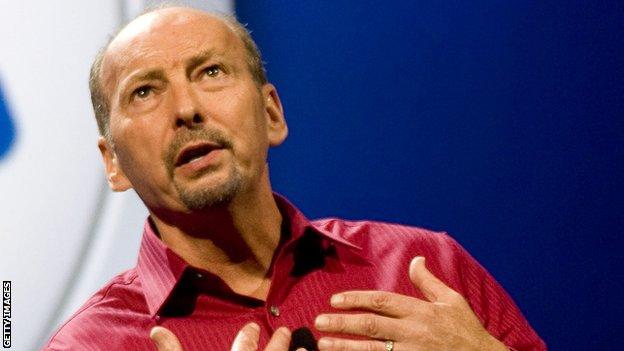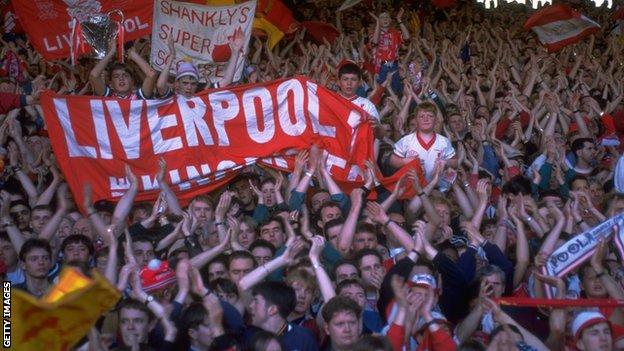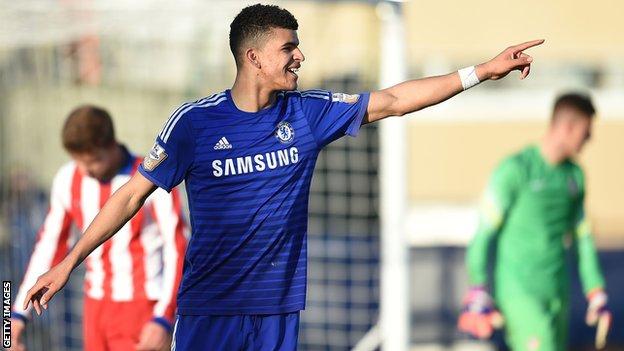Peter Moore: Liverpool chief executive on Jurgen Klopp, transfers and pub chat
Last updated on .From the section Football

New Liverpool chief executive Peter Moore says he has been eavesdropping on fans' pub conversations to get their views on the club - before they recognise him.
The Liverpool-born 62-year-old, a former EA Sports executive, starts his new role on Thursday, succeeding Ian Ayre, who left in February after 10 years at the club.
"I wandered down the road looking for a pint on Sunday and I just sat in the pub listening to three guys on the next table dissecting every position for 45 minutes. It was compelling," he said.
"They didn't have a clue who I was."
But Moore told BBC Sport any transfer targets the fans had in mind would be unlikely to influence the club's policy as those responsible for buying players - manager Jurgen Klopp and sporting director Michael Edwards - were "trusted implicitly".
"There's two Peter Moores," he said. "There's the fan who has his own opinions about what needs to happen and that Peter Moore stays in a box somewhere.
"And then there's the Peter Moore that trusts implicitly what Michael Edwards and Jurgen Klopp and their staff are doing right now. We've got that well under control."
Liverpool 'part of my DNA'

Liverpool-born Moore, who is currently based in the United States, will move back to the city this month to take up his new role.
He has 40 years of experience working for large companies and has held various positions at Electronic Arts over the past 10 years.
But Moore still remembers his first game in 1959 and says he can empathise with those who go to Anfield.
"It's part of my DNA. I can still feel being on The Kop in the old days and moving 15 steps up and down depending on what was going on on the pitch.
"We're in this together, we are a collective. The socialist beliefs that are core to this club all pulling together here. It's very unique and very different.
"If you grew up here in the sixties as a kid and a family these were tough times. There were very few things you had to hang on to or look forward to - for all of us it was three o'clock on a Saturday afternoon at Anfield."
Moore says fans will drive his decision-making.
"When I think about what we need to do here there's a mentality that I have that I will call fan first, which is when we make decisions 'what does this mean for the fan?'" he said.
For Moore, fans are not limited to those attending matches, but those global fans "sitting at 4am in San Francisco with my red shirt on and living and dying with every kick from 5,200 miles away".
How much will Liverpool spend this summer?

Liverpool have already begun their transfer business, agreeing to sign 19-year-old Chelsea striker Dominic Solanke for a fee of around £3m.
But Moore would not be drawn on the club's spending plans for this transfer window: "Who do we need to buy? That's not how it works around here.
"There's a constant process of identifying talent, looking at the opportunities, and like any good business what you do is you say 'we've got a weakness here or we need to invest there build for the future'."
Will being in Champions League again help?
Liverpool secured their return to Champions League football for the 2017-18 season with victory over Middlesbrough on the final day of the season.
Klopp's side finished fourth in the final Premier League table and will have to negotiate Champions League qualifying at the start of next season.
"We have deserved to get back and that is building a better platform for us to be more attractive to players," said Moore.
"It's obviously worth money, and that's public, but we become more of an attractive club again.
"Players who want to play in Champions League - let's not forget this is a World Cup season at the end of next year and players want their national team managers to see them on the big stages."







